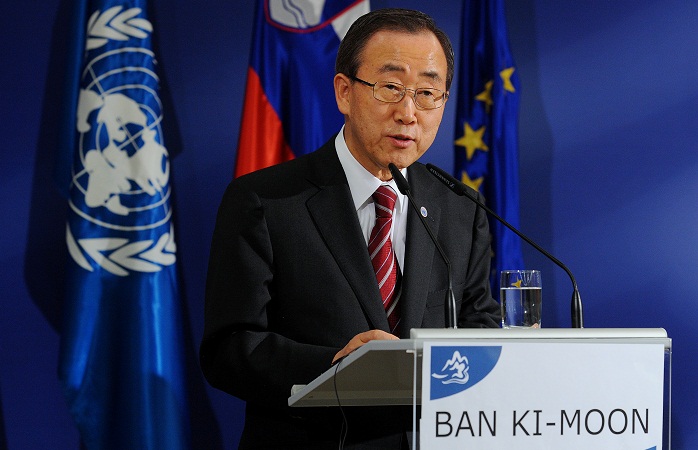The US spends more on healthcare than any nation in the world, yet 28 million Americans still lack care.
“In the US, all too often only rich people get access to expensive life-saving treatments,” said Ban. “This is unjust and threatens everybody’s health when working- and middle-class people with communicable diseases cannot afford treatment for their infections.”
“Even routine preventive care is often prohibitively expensive,” said Ban. “As America is demonstrating, you simply cannot reach universal health coverage if your health system is dominated by private financing and ultimately functions to prioritize profit over care.”
Enacting universal health coverage would be a revolution in US healthcare. Currently, the US relies on a complex network of for-profit health insurers, government subsidies and limited public insurance programs to provide healthcare access to Americans.
Of the 25 richest countries in the world, the United States is the only one without universal health coverage. The political prospects of passing such a law remain remote with conservatives in power, yet calls for universal healthcare in the United States have grown louder since President Trump’s election as Republicans try to dismantle healthcare regulations.
Currently, about 28 million Americans have no health insurance. For people without insurance, an emergency room trip could easily be a financial disaster costing tens thousands of dollars.
In his speech, Ban highlighted that the gap in access to healthcare meant victims of the recent mass shootings at a Las Vegas concert and Texas church were left without affordable care.
“It simply breaks my heart to see victims of tragic mass shootings then be potentially bankrupted because they cannot afford the hospital and recovery bills,” said Ban. “This is one of the clearest indictments of America’s health system today.”
Ban spoke at an event called “Health for All: #WalkTogether” organized by The Elders, a group of global leaders working for human rights. The Elders was founded by Nelson Mandela and is chaired by Kofi Annan.
Robert Yates, a political health economist and expert on universal health coverage at the international thinktank Chatham House, said the international community is increasingly hoping to help Americans achieve universal health coverage.
“We think this is the very first time that the global community has engaged so directly with the US healthcare debate,” he said. “The World Health Organization is thinking as well about how we can help here in the US.”
“I and my fellow Elders are fully aware that healthcare debates in the US somehow are different,” said Gro Harlem Brundtland, former director general of the World Health Organization. “They are fought with more tension and divisiveness than other places.”
Although Trump has called Sanders’ plan for universal healthcare in the US a “curse”, the US has already agreed to work toward that goal. One of the sustainable development goals adopted by the UN was an agreement to work toward universal healthcare by 2030, including in the US.
“President Trump seems intent on dismantling his predecessor’s reforms through excessive executive orders … denying health coverage for poor children for tax cuts for the rich is not what we would expect of a compassionate society, and hopefully the story will end there and it will not happen,” she said.
More about:
















































